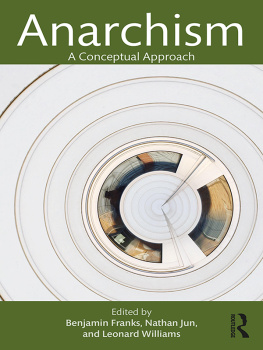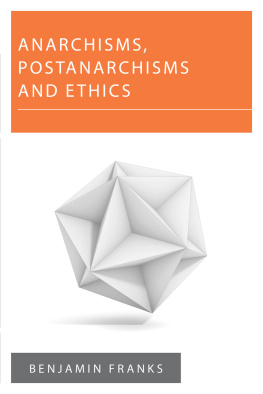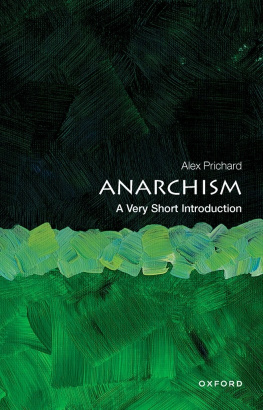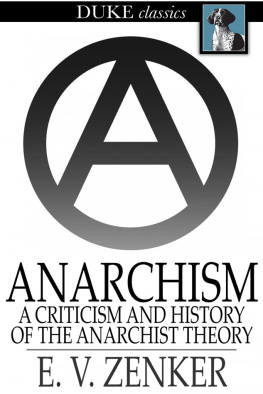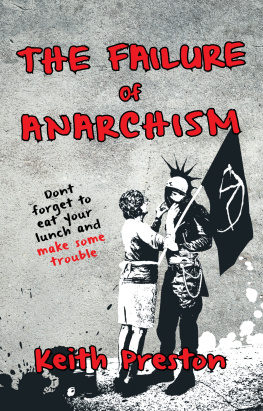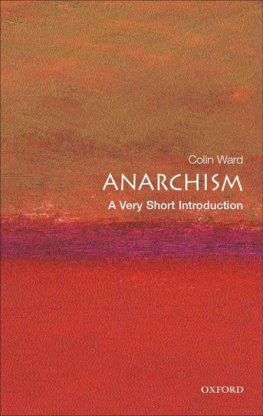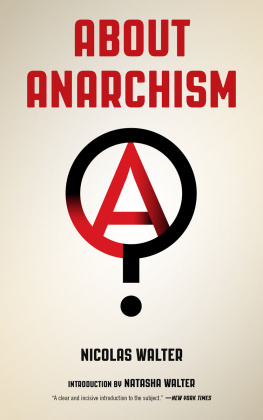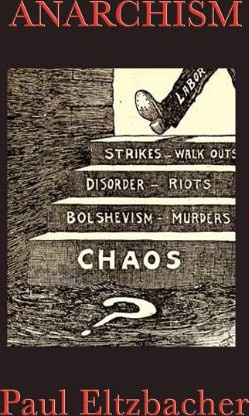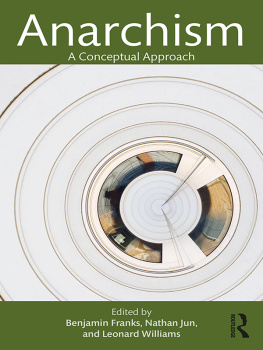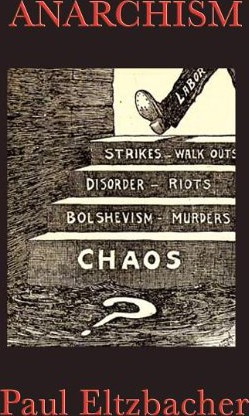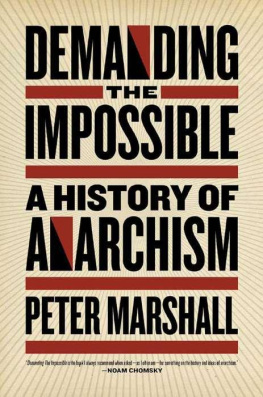ANARCHISM
Anarchism is by far the least broadly understood ideology and the least studied academically. Though highly influential, both historically and in terms of recent social movements, anarchism is regularly dismissed. Anarchism: A Conceptual Approach is a welcome addition to this growing field, which is widely debated but poorly understood.
Occupying a distinctive position in the study of anarchist ideology, this volume authored by a handpicked group of established and rising scholars investigates how anarchists often seek to sharpen their message and struggle to determine what ideas and actions are central to their identity. Moving beyond defining anarchism as simply an ideology or political theory, this book examines the meanings of its key concepts, which have been divided into three categories: Core, Adjacent, and Peripheral concepts. Each chapter focuses on one important concept, shows how anarchists have understood the concept, and highlights its relationships to other concepts.
Although anarchism is often thought of as a political topic, the interdisciplinary nature of Anarchism: A Conceptual Approach makes it of interest to students and scholars across the social sciences, liberal arts, and the humanities.
Benjamin Franks is Lecturer in Social and Political Philosophy at the University of Glasgows Dumfries campus. He is the author of Rebel Alliances and co-editor of Anarchism and Moral Philosophy. His work has appeared in The Journal of Political Ideologies, Capital and Class, and Anarchist Studies.
Nathan Jun is Associate Professor and Coordinator of the Philosophy Program at Midwestern State University. He is the author of Anarchism and Political Modernity. He has published several edited volumes and journal articles on political theory, the history of political thought, and contemporary European philosophy.
Leonard Williams is Professor of Political Science at Manchester University in North Manchester, Indiana. He is the author of American Liberalism and Ideological Change. His writings on anarchism have appeared in New Political Science, the Journal for the Study of Radicalism, and Anarchist Developments in Cultural Studies.
This path-breaking book, with its multiple yet integrated perspectives and insights, is by far the most sophisticated analysis to have been written on anarchism as an ideology. It sets a new standard for understanding and analyzing anarchism's complexities and nuances that all future scholarship on the subject will have to respect and incorporate.
Michael Freeden, Emeritus Professor of Politics, University of Oxford
Franks, Jun, and Williams pioneering application of Michael Freedens approach to ideology gives us a rigorous, sharp, and fresh account of anarchism. Showing how anarchists have interpreted key concepts, contributors to the volume explain the distinctiveness of anarchist analysis, exploding some entrenched myths about the inconsistencies of anarchist political thought in the process. The editors arrangement of these contributions creates an invigorating picture of anarchist ideology. If its possible to imagine alternative conceptual mappings, it is because they have demonstrated how anarchism can be constructed and re-constructed in its own terms.
Ruth Kinna, Professor of Political Theory, Loughborough University
This book provides both a vision of anarchism as a distinct political ideology as well as describing the current debates in anarchist thought and practice. On top of being useful to those engaged in anarchist studies and research it will be very useful for those interested in political ideologies and philosophy more widely.
Jon Bigger, anarchist activist, writer and researcher
First published 2018
by Routledge
711 Third Avenue, New York, NY 10017
and by Routledge
2 Park Square, Milton Park, Abingdon, Oxon OX14 4RN
Routledge is an imprint of the Taylor & Francis Group, an informa business
2018 Taylor & Francis
The right of Benjamin Franks, Nathan Jun, and Leonard Williams to be identified as the authors of the editorial material, and of the authors for their individual chapters, has been asserted in accordance with sections 77 and 78 of the Copyright, Designs and Patents Act 1988.
All rights reserved. No part of this book may be reprinted or reproduced or utilised in any form or by any electronic, mechanical, or other means, now known or hereafter invented, including photocopying and recording, or in any information storage or retrieval system, without permission in writing from the publishers.
Trademark notice: Product or corporate names may be trademarks or registered trademarks, and are used only for identification and explanation without intent to infringe.
Library of Congress Cataloging in Publication Data
Names: Franks, Benjamin, editor. | Jun, Nathan J., 1979- editor. | Williams, Leonard A., 1952- editor.
Title: Anarchism : a conceptual analysis / edited by Benjamin Franks, Nathan Jun, and Leonard Williams.
Description: New York, NY : Routledge, 2018. | Includes bibliographical references and index.
Identifiers: LCCN 2017044519 | ISBN 9781138925656 (hardback) | ISBN 9781138925663 (pbk.) | ISBN 9781317406815 (epub) | ISBN 9781317406808 (mobipocket/kindle)
Subjects: LCSH: Anarchism.
Classification: LCC HX833 .A5683 2018 | DDC 335/.83--dc23
LC record available at https://lccn.loc.gov/2017044519
ISBN: 978-1-138-92565-6 (hbk)
ISBN: 978-1-138-92566-3 (pbk)
ISBN: 978-1-315-68365-2 (ebk)
Randall Amster is Director and Teaching Professor in the Program on Justice and Peace at Georgetown University, and serves as Editor-in-Chief of the Contemporary Justice Review. His books include Peace Ecology (Routledge, 2015), Anarchism Today (Praeger, 2012), and Lost in Space: The Criminalization, Globalization, and Urban Ecology of Homelessness (LFB, 2008).
David Bates is a Principal Lecturer and Director of Politics and International Relations at Canterbury Christ Church University. His research is concerned with two key areas: first, contemporary social and political theory, with specific reference to the Marxist and anarchist traditions; second, the theoretical underpinnings of contemporary social movements.
Mark Bray is a historian of Modern Europe and a political organizer. He is the author of Antifa: The Anti-Fascist Handbook and Translating Anarchy: The Anarchism of Occupy Wall Street as well as the co-editor of Anarchist Education and the Modern School: A Francisco Ferrer Reader. Currently he is a lecturer at Dartmouth College.
Ekaterina Chertkovskaya is a researcher in degrowth and critical organization studies based at Lund University. Critiques of modern forms of work and consumption, as well as the possibilities of organising them in line with degrowth, are some of the central themes of her work. She is also a member of the editorial collective of ephemera: theory & politics in organization an independent open access journal.
Benjamin Franks is the Lecturer in Social and Political Philosophy at the University of Glasgows Dumfries campus. He is the author of Rebel Alliances: The Means and Ends of Contemporary British Anarchisms

